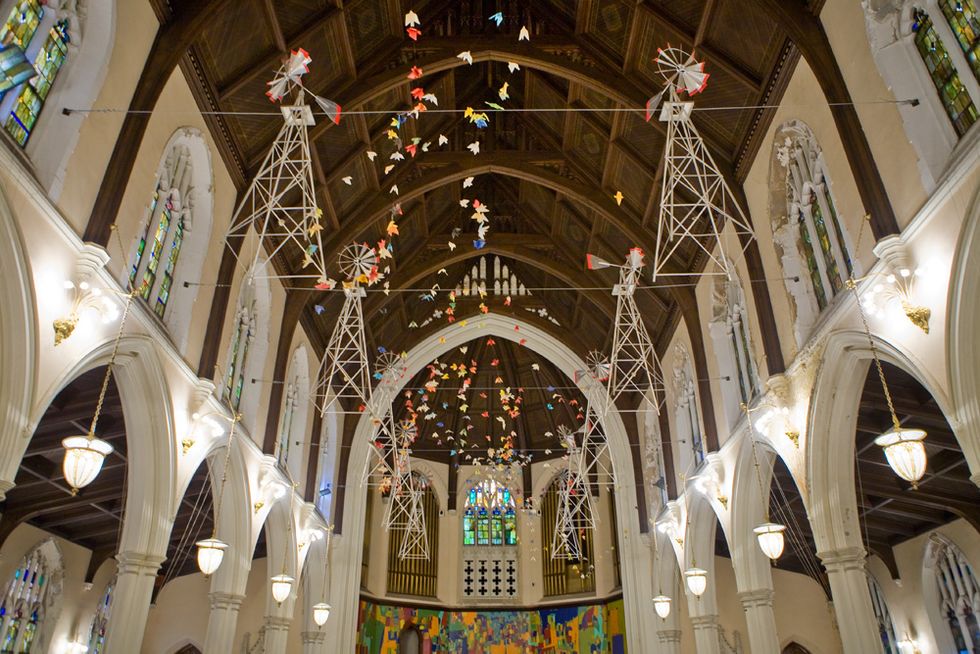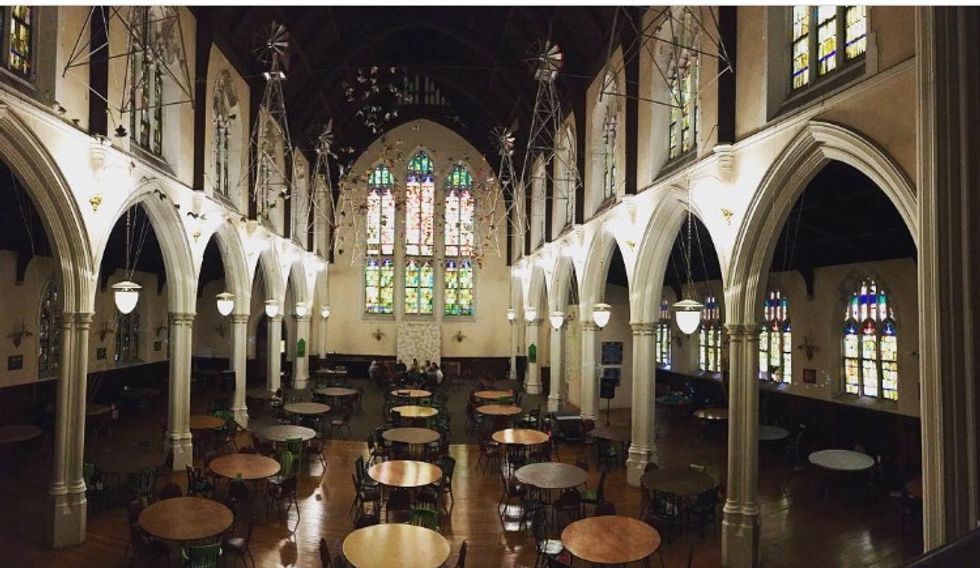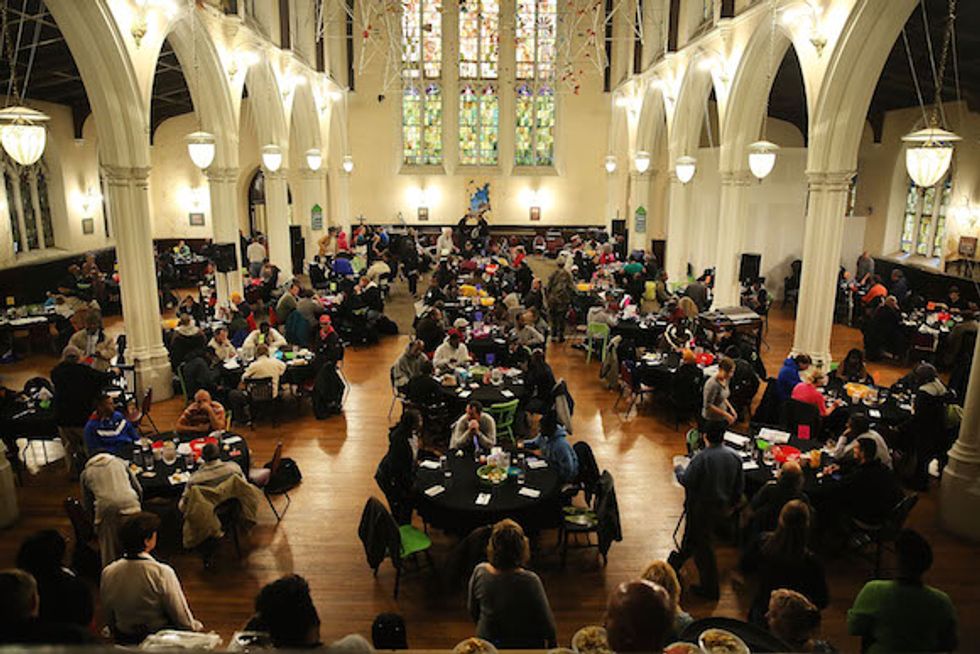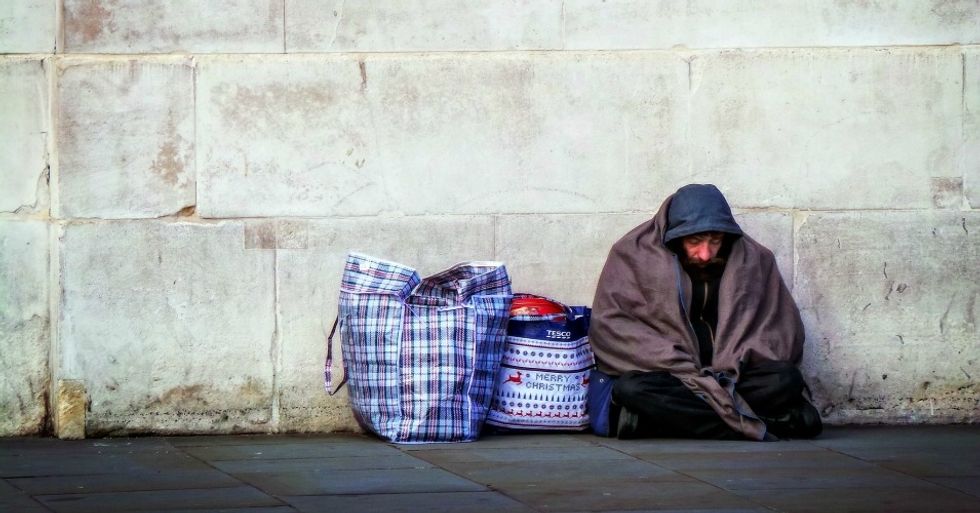The Broad Street Ministry
During my week of spring break, I spent four days serving the homeless at an amazing non-profit, the Broad Street Ministry, through a program at my college called Alternative Spring Break. Instead of relaxing and spending my time on the beach, I slept in a cot, showered in a public gym, and spent a majority of my time making new friends, hearing stories, and serving the Philadelphia community. My experience was not negative in the slightest- if anything, it was eye-opening. I was not expecting to walk away with such knowledge and experiences that would change my view on hunger and homelessness in Philadelphia, but here I am today.
You may be asking yourself, what is the Broad Street Ministry?The Broad Street Ministry is a non-profit organization that offers a wide array of free services for anyone in the community, including meals, personal care items, clothing, Sunday worship, art therapy, music therapy with the Philadelphia Orchestra...just to name a few. They pride themselves on the art and community that brings people together and makes them feel the hospitality that humans deserve. This organization is unlike any that I have ever seen. The people who work there and volunteer there genuinely care about what happens to the people in the community. They come to work or to volunteer every day and put in an 110 percent effort, and this effort has some great results. In some instances, the case workers are able to help their guests (clients/community members) to find homes, jobs, etc. The environment is not like anything I've ever seen before, too. Some community members may not even need their services anymore, but still come back to see their friends, knowing that BSM will always be a safe, stress-free environment to feel more engrossed in the surrounding community.
The Week
Throughout the week, our theme was "nourish." Each day, we nourished different parts of the city- the ground, the community, the city, and ourselves. On day one, we cleaned up planters on an urban farm in Fishtown, to prepare them for planting once the weather becomes warmer. This way, the community will have access to fresh, healthy produce that they might not otherwise be able to obtain.
On day two, we nourished the community and served during the breakfast and dinner breaking bread services. I had the opportunity to be able to talk to two of the guests about my future career in the behavioral health field and mental illness, but I regret not having the time to ask them about their stories.
On day three, we did a scavenger hunt around the city to find out what services are offered to homeless people. We went to places like Proact, Project HOME, and the Valley Youth House. We were unable to finish the scavenger hunt, but with good reason- we got to talking to a homeless man named Richard near Fairmount for an hour or two. Richard shared his story with us, and his experience with Project HOME and other services in Philadelphia. He really shed light on how the city, is failing to pass policies that help homeless people get access to services, and instead ignores them and hides them away from the general public. In addition, he shared his critiques on the non-profit services in the city. The conversation with Richard made me realize that although there are services in place, often they do not work as well as some organizations may think.
On day four, we served in the breaking bread lunch service. Thursday lunch service is supposedly the busiest of the week because most shelters and soup kitchens do not serve food that day. Instead of being a server, I was put into the personal care service. Personal care service allows guests to sign a form to get items like underwear, socks, toothbrush and toothpaste, soap, deodorant, etc. free of charge. The items are packed in a brown bag and are completely confidential. Once the bag is packed, the guest can pick it up in another location. During the first half of the service, I packed bags. It was pretty easy and fun to talk to other volunteers, but I wanted to be in the action and be able to talk to guests. I got what I wished for. Halfway through, I switched to the sign-up table. I assisted guests who may not be able to read or write to fill out their forms and answer any questions that they might have. The sign-up table was harder than it looked, especially with the personal interactions. Guests begged me for an extra pair of socks or another razor. They explained their stories and told me that just one wasn't enough. Saying no was probably one of the hardest things that I've ever had to do. I felt horrible, but I knew that these boundaries had to be in place in order to keep the services fair and equal for all of the guests.
Each night, we had long discussions about race, gentrification, poverty, and politics. It put into perspective how often the system is at fault for homelessness and hunger, and not the people. We spent a great deal of time talking about mental illness and homelessness as well. The most shocking statistic that I learned this week was that 23 percent of Philadelphia is below the poverty line. Clearly, something needs to change.
The Lesson
I was not expecting to walk away with such a better understanding of hunger and homelessness in Philadelphia. What seemed to be a quick service trip turned out to be so much more. First and foremost, I realized that homeless people are human. It's so easy to walk by homeless people on the street and pretend that they don't exist, which is exactly what I used to do, and quite frankly, I feel terrible about it. After talking to a few of the guests, I learned that one of the most important things is for them to be visible, to be heard. From now on, I will make sure to say hello and ask how their day is going, even if I can't offer them food or money. I learned that instead of giving someone money on the street to give them a quick fix, that I should donate to organizations like Broad Street that focus on the long term.
I walked away from this trip realizing that regardless of wealth, status, or mental health, everyone deserves to feel important and loved. Everyone deserves to be asked how they are doing. Everyone deserves the human interaction that we often take for granted. When I was speaking with Richard, he asked each and every one of us, "What are YOU going to do about it?" and that really resonated with me. It would be easy to check a box for the resume, close this chapter of my life, and never do service again. I'm sure that most college kids who serve do that- but not me. I have already decided to devote the rest of my life to helping people with mental illness, and with my newfound interest in hunger and homelessness, I hope to continue to volunteer at BSM in the future.
So, after reading this article, what can you do?
You can take the same measures that I am planning on doing, such as acknowledging homeless people on the street, and stopping to talk to them if you have time- you never know what you may learn from their story, or if a possible friendship is waiting to bloom. You can consider donating to awesome organizations like BSM or Sunday Breakfast (another non-profit.) Homelessness is a problem, especially in Philadelphia, and it's not going to go away anytime soon without the proper education, recognition and policy. It starts with you.






 Photo by
Photo by  Photo by
Photo by  Photo by
Photo by 



















